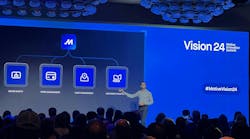Disturbing tactics on both sides of hours-of-service debate
Trucking and government interests are engaged in a major political debate over Section 335 of the Senate's Transportation Appropriations Bill. This is the provision that was inserted by Sen. Lautenburg (R-Ala.) at the behest of the American Trucking Assns. (ATA) and other industry interests. It would essentially stop DOT's hours-of-service rulemaking process dead in its tracks for a 12-month period by prohibiting the agency from spending any money on "this or any other similar rulemaking."
On one side, you have Administration, law enforcement, and "safety zealots" (CRASH, for example), who are trying to keep the rulemaking process alive. DOT has extended the rulemaking comment period twice, and will now accept public comments through Dec. 15, 2000. The agency offered to conduct three roundtable discussions, with the expressed purpose of reaching out to the industry and others to discuss and address concerns with its May 2, 2000, Notice of Proposed Rulemaking.
Law enforcement, labor union and safety advocate officials joined together in a July 20th appeal to allow DOT to continue the rulemaking process. NHTSA and FMCSA issued a joint press release last month condemning the "raw use of political power by specific trucking interests to stop [HOS rulemaking] progress.
On the other side, you have ATA and other industry representatives pushing to keep Section 335 intact. House members have been asking them to sign a "Dear Colleague" letter to support the Senate hours-of-service language. To date, more than 80 House members have indicated their support.
In a rebuttal letter to Transportation Secretary Rodney Slater, ATA accused DOT of violating laws that forbid use of public funds for publicity, propaganda or prohibited communications to influence legislation. The letter also accuses NHTSA and FMCSA agency chiefs of impugning the good faith of U.S. senators, rewriting history and castigating a segment of the American public for exercising its First Amendment right for redress of grievances.
The tough language coming from both sides will no doubt leave open wounds for some time to come.
Now don't get me wrong. I think DOT's hours-of-service reform proposal has many flaws that need to be addressed before the rule can be effectively and workably implemented. The mandatory "weekend" consecutive off-duty time, for example, could effectively strand a driver from 11 p.m. at night until 7 a.m. three mornings later.
I'm inclined to agree with Sen. John McCain (R-Ariz.), one of three senators who opposed the provision during the June 15th floor debate. McCain said:
"...I believe it critical to allow and actually require the Department to continue its work to develop sound new rules governing motor carrier operators. I fully recognize the DOT's regulatory proposal is not acceptable in its current form. Moreover, the public needs sufficient time to analyze the proposal and the Department must clearly evaluate and understand its implications before a final rule can be issued. But the Appropriations Committee approach, which prevents the DOT from doing anything in this area, is simply wrong."
We work in a remarkable industry that has fostered much increased efficiency since the era of deregulation. Similarly, we have the ability to work with a new set of hours-of-service parameters that will provide drivers - our most important resource - much needed time for rest and restorative sleep.
Delaying the rulemaking is a paralyzing head-in-the-sand approach. My fear is that this fight will end in a "black-eye moment" that will forever lessen public opinion of our already beleaguered industry.
Jim York is a senior risk engineering consultant at Zurich Insurance, Fredricksburg, Va.


